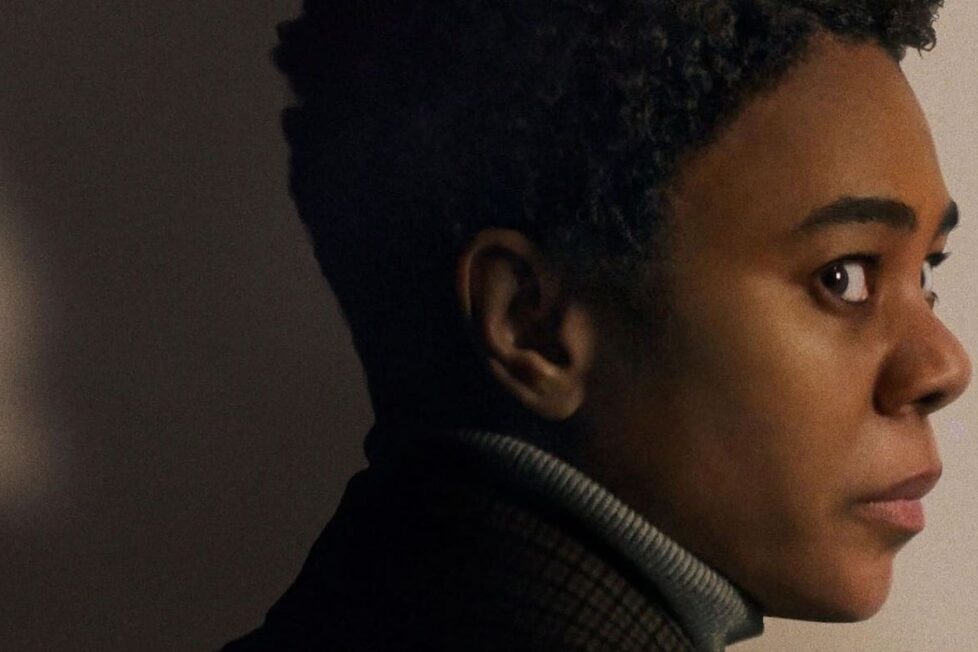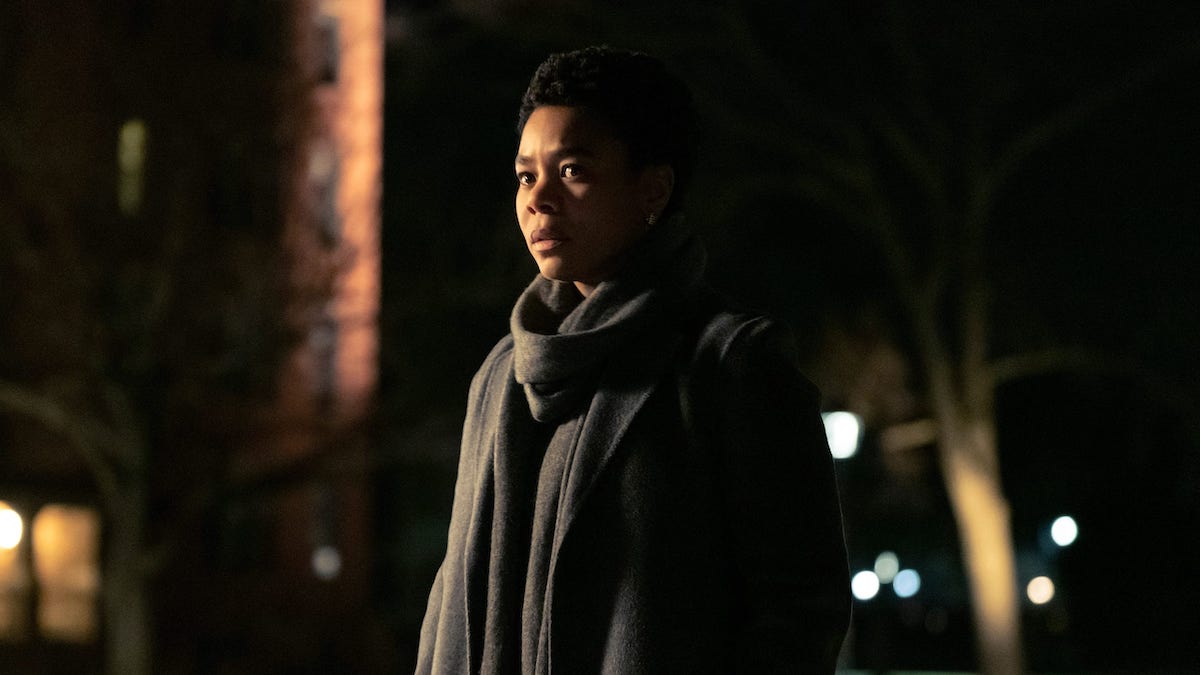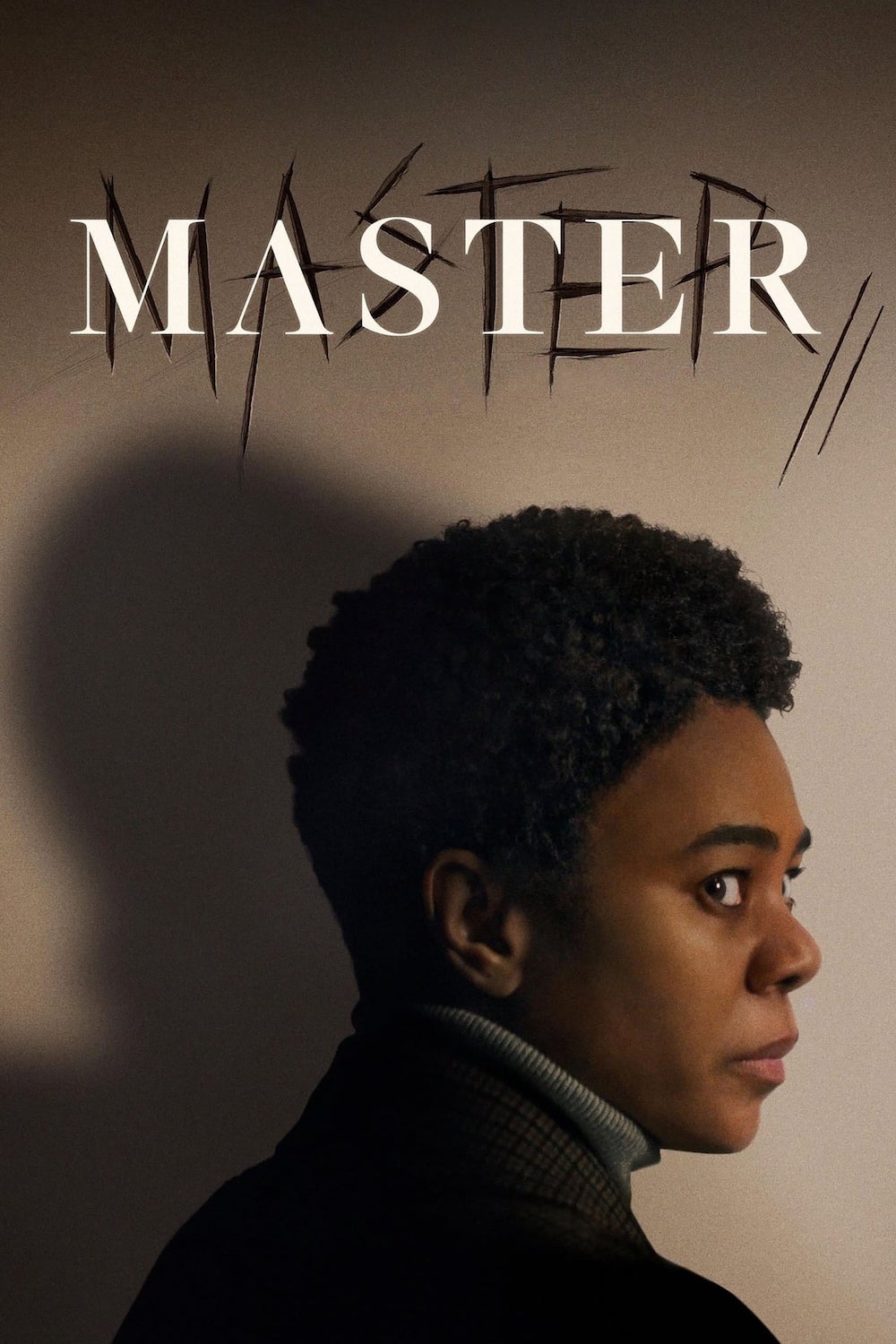MASTER (2022)
Two black women at an elite university encounter racism of different kinds... but is there a supernatural threat too?

Two black women at an elite university encounter racism of different kinds... but is there a supernatural threat too?


Mariama Diallo’s feature debut as writer-director is a thought-provoking film, but not in a good sense. There are clearly ideas here, and one wants to make sense of them, but even after a lot of thinking you probably won’t. Some of its ideas are obvious to the point of over-familiarity. The racist micro-aggressions suffered by black student Jasmine (Zoe Renee) and black senior academic Gail (Regina Hall) at a posh, almost entirely white university very likely reflect reality, and Diallo’s said that the film draws on her own experiences at Yale, but surely by now they’re so well-known (even to the most cloistered white audience) that they don’t need such constant emphasis? And yet the film repeatedly devotes whole scenes to hammering the point home.
Other ideas are so inadequately expressed and explored that we can’t be sure what they even are, and this isn’t down to great subtlety; they’re bewildering, incomplete, and ill-articulated. The comparisons that have been made to Jordan Peele’s Get Out (2017) are incredibly wide of the mark.
Most notably, Master starts out looking like it’s going to be a horror movie, with Jasmine assigned a supposedly haunted dorm room at the university, and the ghost of a woman hanged centuries ago for witchcraft making several appearances in her dreams (which as individual episodes are effectively disturbing if a little overdone). But the theme of the ghost—like many things in Master—fizzles out into irrelevance. Diallo’s said she had to cut it down, but it would’ve been better cut out altogether. As it stands, its symbolism is unclear (a female witch, an extreme example of the outsider, was so oppressed herself that she hardly makes a good metaphor for historic oppression “haunting” black people today) and its contribution to the narrative is minimal.
Carved into six chapters entitled with dialogue quotes like ‘I Hate You’ and ‘It’s Everywhere’, Master takes place at the fictional college Ancaster; an old and exclusive establishment near Boston, Massachusetts—although it was actually filmed at Vassar College in New York State.
It opens with the arrivals of Jasmine as a freshman and Gail as the master of the house where Jasmine will be living, and follows their stories in parallel. They’re connected not only directly but also through their shared acquaintance with Liv (Amber Gray), another faculty member who teaches Jasmine and is a friend of Gail.
The university talks the talk on inclusivity, but in reality students of colour are few (one character mentions a barely credible eight), and it’s not long before Jasmine encounters racism. Later on this will become extreme (‘Leave’ inscribed on her door, a noose, a burning cross), but at first it’s more casual: the taken-aback attitude of fellow students when she first enters her room, the hostility of a cafeteria worker (herself black).
Some viewers will doubtless perceive some of the incidents as ambiguous. For example, a white librarian is genuinely friendly until Jasmine sets off a book-theft alarm. But others are clearcut, with the most telling being an incident where a white boy tries to deny her entrance to a student party, saying “we’re at capacity.” She manages to get in, however, and finds it full of other white boys singing along to Sheck Wes—exclusion and appropriation in one vignette.

Two dramatic changes in Jasmine’s hairstyle, at first confusing, are presumably intended to suggest an attempt to fit in with the university’s white milieu and the attempt’s subsequent abandonment.
Meanwhile, Gail has to deal with less overt but still real condescension from her white faculty peers (she says she feels like “a house nigger”), and repeatedly comes across evidence of the university’s historic racism: a sketch showing the progress of evolution from ape to black man, a stereotyped figurine, and (in one of the film’s best touches, toward the end) photos of the white, male past which uncannily resemble the white, male present.
Liv, too, is bumping up against prejudice—or perhaps not—as she seeks to persuade the university to grant her tenure. She may also be betraying her own prejudices in her treatment of Jasmine, apparently assuming that the girl is from the ghetto, not from a middle-class suburb.
Individually, all these stories have some interest, and a sense of mystery is added by the existence of an Amish-like local community (seen by Gail when she jogs past a graveyard), whose relevance becomes clear later on and, indeed, leads to a twist that in itself is certainly clever. Any one of them might even the basis for a decent movie on its own.
The problem is that Master doesn’t really go anywhere with any of them. It’s more a statement (the university is racist) than a story. Even if the lack of clarity surround the big revelation at the end is intentional (it might be true, or it might not), the rest of the film’s little more than a catalogue of incidents reiterating the central point about racism.
Jasmine, in particular, is barely a character, just a passive recipient of prejudice and nightmares. We hardly know a thing about her except for her victimhood. Gail and Liv are slightly more fully sketched, but again we have very little sense of who they are outside of a racial context.
Moreover, nothing much changes in the course of the movie, and while this too might be intentional—“it’s not ghosts, it’s not supernatural, it’s America and it’s everywhere”, says Gail, referring of course to racism—it perhaps also makes framing the idea in a narrative medium rather pointless.
Amongst the cast, Renee does her best with the thankless character of Jasmine. Hall’s Gail is convincing, and she’s the most intriguing person in the film; black, successful, relatively conformist but harbouring some doubts about it. The movie’s title suggests many contradictions in her position (“master” of course being used in the context of slavery, and being a gendered term) and a heavier focus on her, rather than Jasmine, might’ve made for a more involving film. Gray as Liv is persuasive too as an all too real kind of self-consciously nonconformist academic.
Many of the actors in smaller roles have some charisma. For example, Will Hochman as a young white man who briefly flirts with Jasmine, and Kara Young as another black student. But their characters have no function and are dropped almost as soon as they’re introduced. A student from England (Ella Hunt) seems to exist solely in order to get unfairly better marks than Jasmine.
Master is competently made from a technical point of view, with a good sense of place, and Diallo assembled a cast that surely could have brought a better screenplay to vivid life. But none of that can save a film which ultimately boils down to just one assertion—“there is racism”—without offering any new angle on it, or even any unexpected examples of it. And it doesn’t give its characters anything interesting to do.
USA | 2022 | 98 MINUTES | 2.39:1 | COLOUR | ENGLISH

writer & director: Mariama Diallo.
starring: Regina Hall, Zoe Renee, Amber Gray, Talia Ryder & Ella Hunt.
